Coronavirus Infects Chinese Auto Market, Supply Chain Problems Persist
Not that there’s ever a good time for a global pandemic threat, but the coronavirus currently sweeping through Asia really could have scheduled itself more conveniently. China was already in the midst of an economic downturn when the virus reared its ugly head, with the country’s automotive sector having just moved backward for the second year in a row. The outbreak, centered in the Hubei province’s capital of Wuhan, is guaranteed to worsen the issue.
Responsible for about a tenth of China’s automotive manufacturing power, the region has basically gone dark since the outbreak picked up steam late last month. Over 50 million people are now presumed to be under house arrest due to the Chinese quarantine. Forbidden from going outside, they’re hardly likely to risk infection and government ire just to put for a few hours at their local factory. They also aren’t going to run out to their nearest dealership to support the ailing economy — but that’d be the first place to go after the sequestration ends.
If I were in their shoes, I certainly wouldn’t be taking the bus for a while.
What Will Happen If a GM Employee Criticizes China?
The issue of China’s totalitarian government intimidating American businesses into silence over protests in Hong Kong and human rights violations in China has come to the fore, with three nearly simultaneous incidents. The National Basketball Association didn’t quite censure the Houston Rockets’ general manager Daryl Morey for tweeting “fight for Freedom” and “stand with Hong Kong,” but league commissioner Adam Silver’s attempts to mollify Xi JinPing’s regime, to preserve the NBA’s profitable ventures in China, have been described as craven. E-gaming company Blizzard Activision, which is 4.9-percent owned by the Chinese Tencent company, stripped a tournament champion of his title and winnings and banned him for a year for expressing support for Hong Kong in a post-event broadcast. When the animated South Park comedy show satirized censorship in China, the Chinese government simply erased South Park from the Chinese internet as though it never existed. On that side of the great firewall of China, South Park has become like Nikolai Yezhov.
To their everlasting credit, Matt Stone and Trey Parker, South Park’s creators, unlike the NBA and Blizzard Activision, didn’t kowtow, instead releasing an “apology” that mocked both Chinese government censors and the NBA.
It’s abundantly clear that China will use the threat of punishing American companies by restricting access to the Chinese market in order to exert intimidating influence here in the United States.
What does that have to do with cars?
China Making Moves to Improve Its Crippled Auto Market
While you’ve heard the media prophesying a global recession for months now, one that will effectively obliterate the younger generation’s purchasing power for the rest of their lives ( or so they say), the United States is actually in relatively good shape vs other markets. The People’s Republic of China already appears to be in a recession, and it’s no state secret that its automotive market is hurting.
Part of that is due to the ongoing Sino-American trade war, but there are other factors at play. We’ve previously covered how China’s overzealous adoption of increasingly rigid efficiency mandates upset auto sales. As it turned out, the nation’s commitment to zero-emission vehicles and swelling emission rules scared off a subset of buyers. Others simply couldn’t rationalize making such a large purchase during a period of economic uncertainty.
This all resulted in China’s automotive market experiencing more than a full year of consistently negative growth — something the PRC would like to see fixed posthaste. On Tuesday, the Chinese State Council announced a tentative plan to fix its struggling economy.
Chinese Auto Market Still Sour, Dealers Discount Old Stock
Automotive retail sales in China rose slightly last month, representing the first uptick in volume over the last year, according to Bloomberg. But those gains were the result of a nationwide fire sale of backed-up inventory that dealers were tired of seeing clutter up their lots. Officially, the China Association of Automobile Manufacturers (CAAM) says the new vehicle market still kind of sucks.
For June, wholesale deliveries of new passenger vehicles fell 7.8 percent to 1.73 million units. That’s twelve straight months of negative growth.
BEV Fires Encourage China to Get Serious About Battery Safety, Vehicle Monitoring
China is currently the largest proponent of electric vehicles on the entire planet. The nation has even incorporated BEVs as a significant part of its complex strategy to overtake the United States the dominant global superpower. However a sudden influx of battery related fires has caused it some trepidation, even though there hasn’t been much evidence to suggest they are actually more prone to catching fire than gas-powered vehicles.
Regardless, the People’s Republic is now demanding that manufacturers conduct routine inspections on electric cars. China’s Ministry of Industry and Information Technology says all companies must conduct checks on BEVs, focusing on battery waterproofing, battery boxes, charging points, high-voltage wiring harnesses, and even the wear of mechanical components. They will also be required to report on repairs and any incidents that might indicate a problem. According to the ministry’s press release, they have until October to submit their findings.
Driving Dystopias: China Doesn't Sound Terribly Fun
With China having become the world’s largest automotive market by individual sales, it’s worth keeping tabs on it for burgeoning driving trends. While that’s predominantly revolved around electric vehicles, the People’s Republic also has pretty strict driving rules backed by some of the tightest monitoring of a civilian population imaginable. China is setting up a vast surveillance system that tracks every single one of its 1.4 billion citizens and is adapting it for use in its new “social credit system,” which sounds like the most Orwellian thing in existence.
The system is intended to publicly shame criminals, debtors, jaywalkers, and those with “controversial” political views while monitoring their every move but it’s also doing a fine job of making life harder for drivers.
Zotye Confirms T600 As Brand's First U.S. Market Model
At this point, it feels that every Chinese automaker has delivered an unrealistic promise of bringing fresh product into the United States within a couple of years. Last November, Zotye, Ford’s partner in Asia with a penchant for producing copycat models of European cars, announced plans to bring something over in 2020.
The firm now claims that the T600 crossover — which looks in no way like something from Volkswagen Group; certainly not an Audi Q5 or VW Touareg — will be first model in line for a boat trip to America.
Chinese Auto Market Not As Hot As Everyone Thought
China might not be the kind of market everyone thought it was — one without a ceiling, boasting unlimited potential for growth. One by one, automakers find themselves having to confront economic reality.
Despite amassing a network of factories that could theoretically outproduce the rest of the world, the Asian country’s automotive sector only operates at about half its total capacity. That’s disconcerting. Even Europe, site of some serious industrial headwinds of its own, manages to operate around 70 percent capacity.
While the reasons for China’s woes are ludicrously complicated, one of the most pressing issues is that its economy is slowing much earlier than anticipated. Automakers, both foreign and domestic, almost universally believed that The People’s Republic would surpass the United States as the world’s largest automotive market — and they were right. But investments kept pouring in, factories were built, and the market started to cool prematurely. The situation only grew worse as incentives dried up and people began buying fewer cars; now, 2019 is shaping up to be a very bad year for the nation’s automotive sector.
China Readies Rigid Auto Investment Rules for 2019
Despite spending a fortune supporting burgeoning automotive manufacturers and opening its door to foreign enterprises, China’s state planner has approved strict new regulations on investments within the industry.
Following a handful of draft proposals earlier this year, China’s National Development and Reform Commission (NDRC) announced it will ban new independent businesses that make only traditional combustion engines while continuing to push for more “new energy” vehicles.
The People’s Republic has what some might call a bit of a pollution problem. But it’s also one of the largest and fastest-growing battery producers in the world; state policy aims for the widespread adoption of electric vehicles. Unfortunately, this left China with hundreds of automotive startups that will never become profitable just as the country enters an economic downturn and its first year of negative car-sale growth in decades.
China's Qiantu Motor to Manufacture EVs in North America With Domestic Partner
Every few weeks, it seems there’s another Chinese manufacture promising to wriggle into North America. This week it’s Qiantu Motor, which intends to build the K50 electric sports car with help from California-based EV firm Mullen Technologies. According to a preliminary agreement published on Mullen’s website, the American firm will homologate, assemble, and market the electric sports car in North America in 2020.
Simon Lei, Qiantu’s Head of Product Planning, previously expressed the brand’s intent to sell the model within the United States last April. Naturally, we’re always a little skeptical of these kinds of claims, given China’s track record on the matter and the ongoing trade war.
Trade War Watch: China to Temporarily Suspend U.S. Auto Tariffs
China announced Friday its intent to reduce tariffs on imports of American-made cars as it tries to negotiate a trade deal with the United States. As you’ll recall, the People’s Republic imposed additional punitive tariffs on U.S. cars and auto parts earlier this year after promising it would lower the trade barriers on a global scale.
Things look to be different this time around. China has already taken steps to scale back the trade war and appears ready to continue down that path. Earlier this month, President Donald Trump and Chinese President Xi Jinping agreed to a truce in the trade war at their meeting in Argentina. This was followed by an announcement, via Trump’s Twitter account, claiming China had agreed to scale back auto tariffs against the United States.
Trade War Watch: Trump Says China Will Remove Car Tariffs, China Claims Nothing
Last night President Donald Trump tweeted that China had agreed to reduce tariffs. While The People’s Republic already lowered tariffs over the summer, it chose to cut the United States out of that deal as trade relations worsened. In fact, America found itself subject to an increased, 40-percent fine on imported autos while the rest of the world saw their tariffs (partially) eased. But the president seems optimistic.
“My meeting in Argentina with President Xi of China was an extraordinary one,” Trump explained in a follow-up post. “Relations with China have taken a BIG leap forward! Very good things will happen. We are dealing from great strength, but China likewise has much to gain if and when a deal is completed. Level the field!”
Meanwhile, China remains silent on the matter.
Automakers Helping China Spy on Drivers: Report
As concerns grow about the Chinese government’s technology-driven “social credit” system of controlling its citizens, the Associated Press reports that the country, through regulations for electric vehicles, is requiring global automakers to supply telemetric data from their vehicles that could help the one-party state spy on its people.
American, German, and Japanese automakers, including General Motors, Ford, Tesla, Daimler, BMW, Nissan, and Mitsubishi, are among 200 manufacturers whose products must transmit location information and dozens of other pieces of driving data in real time that ultimately end up in monitoring centers that can report that data to the Chinese government.
Zotye Intends to Be 'First' Chinese Brand Sold in the United States
Zotye Automobile has expressed its intent to become the first Chinese automaker slinging sport utility vehicles in the United States. While some outlets report that this feat would make it the first, that’s putting the cart before the horse. There are few automakers vying for this honor.
Guangzhou Automobile Group (GAC) previously outlined its own plan to get its flagship SUV into America by 2019, showing up at the New York International Auto Show last year to promote its exotic wares. While we weren’t overwhelmed by the product, some of which boasted faux exhaust ports and less-than-ambitious interiors, the display proved GAC was a serious automaker and seriously interested in entering the market — which is about all we’re willing to say about Zotye before we see a physical store.
Side-stepping Tariffs: Tesla Sets Chinese Target of 3,000 Model 3s Per Week
Due to China’s increased tariffs on U.S.-manufactured vehicles, Tesla’s sales have taken a moderate beating there. Like any automaker hoping to move metal within the region, it wants a solution and seems to have come up with one. While there appears to be little hope of the brand’s larger vehicles circumventing the nation’s 40 percent import duty, there’s still hope for the Model 3.
The plan is a familiar one.
North American Buyers Couldn't Prop Up Ford's Global Business in the Last Quarter
China, Europe, and South America all conspired to sink Ford’s profits in the third quarter of 2018, with the automaker posting a 37 percent net income drop compared to the same quarter a year ago.
The earnings report came the same day Ford announced the creation of a standalone Chinese business unit, Ford China. Dismal overseas performance didn’t come as a shock, however, as these headwinds were also felt in previous quarters, albeit not as strongly. That hasn’t stopped a barrage of questions directed at CEO Jim Hackett over how he plans to build a successful operation outside of America’s borders.
As Sales Plunge, Ford Tries Again With China
Ford isn’t about to kiss off the barely tapped potential of the Chinese new vehicle market, so it’s throwing more effort into strengthening its efforts in that “developing” country. To better mine a market in which its sales sank 43 percent last month, the automaker has announced the creation of a standalone business unit: Ford China.
Overseeing the unit is a CEO poached from a Chinese automaker — a man who once spent 17 years working under the Blue Oval banner.
BMW Buying Out Brilliance Automotive in China, Adding Capacity for U.S.
Now that China has relaxed its joint-ownership mandates, BMW has announced that it will procure a majority stake in its venture with Brilliance Automotive. The German firm will be the first foreign automaker to have majority control of its business in the region.
Being first will not come cheaply, however. It will cost BMW $4.2 billion to assume control with a majority stake of 75 percent of the business — albeit as part of a larger deal. All the manufacturer has to do is come up with the funds and wait until 2022, when rules limiting foreign ownership for all Chinese auto ventures are officially lifted.
Times Get Tougher for GM's Chinese Venture As Automaker Orders 3.3 Million Vehicle Recall
Tariffs and other pressures are weighing on the once blistering hot Chinese new car market, and a suspension issue has now added new storm clouds to General Motors’ formerly sunny skies. The automaker’s Chinese arm, GM Shanghai, has announced the recall of 3.3 million Chevrolet, Buick, and Cadillac models.
Bad news for a foreign company in a suddenly dodgy market.
A U.S.-launched Trade Dispute Is Helping Toyota in One Key Market, but for How Long?
While the trade situation is still very much in flux, Toyota sees itself as standing to gain from the turmoil, just not in the United States. The automaker, along with other Japanese brands, finds itself in an advantageous position in China — a massive market facing its own troubles.
China’s anger at the U.S., and vice versa, could mean big bucks in the short term for Toyota.
American Automakers Losing Footing in China's Wonky Market
Last week, we looked at how the world’s largest automotive markets are coping. If you’re interested in an abridged version, they could all be doing better. We also noted that China was getting around to summarizing its summer sales data. Well, that ship has since come in, and it was full of corpses. The country has endured three straight months of falling car sales after years of consistent growth.
As the world’s largest automotive market, China impacts just about every other industrialized nation on the planet. Unfortunately, the China Association of Automobile Manufacturers (CAAM) reported that influence helped the market share of U.S. brands fall to 10.7 percent in the first eight months of 2018 versus 12.2 percent just one year earlier. The association’s assistant secretary general, Xu Haidong, said this decline could be attributed to American firms inability to refresh their lineups in a timely manner and definitely had nothing to do with the trade war, anti-American sentiments, or the boycotting of U.S. brands by Chinese consumers.
Ford Snatches Away the Focus Active, Leaving Future Low-end Buyers With the EcoSport and What Else?
U.S. Ford Focus production ended in May, but the automaker planned to import the next-generation Focus Active, a slightly lifted, mildly cladded five-door, in order to have something to sell to entry-level buyers. With the subcompact Fiesta ceasing production early next spring and the Fusion following it a couple of years later, that left very little low-end product for new or returning customers.
Well, scratch a crossoverized Focus off your shopping list. The automaker now says the Focus Active will not arrive on these shores in the latter part of 2019, or any date after that.
After learning this, how many of you are now pricing a three-cylinder, FWD EcoSport? Anyone? Hello?
Your Future Steed? Brawny Chinese SUV Spied Testing in Colorado
This Chinese New Yorker is a long way from home. Photos snapped by TTAC reader MUSASHI66 show a GAC GS8 SUV sunning itself in an Aurora, Colorado parking lot. Wearing New York dealer plates, the SUV also carries a Motorola Radius two-way radio and front passenger seat-mounted laptop, which isn’t standard content in any SUV.
Of course, this isn’t just any SUV. It’s a utility vehicle made by an automaker that really, really wants to spread its wings in the United States.
Faraday Future Sets up Headquarters in China, Promises New Models and 5 Million Cars By 2028
Evergrande Health Industry Group Ltd, which owns a 45 percent stake in U.S.-based Faraday Future, said Tuesday that the electric vehicle startup has officially moved its headquarters to China. The group claims Faraday now plans on building five R&D and production facilities across the country over the next decade.
The intended goal is to have the startup reach an annual production capacity of 5 million vehicles within 10 years and launch multiple “premium to entry-level segments for the global auto market, to build an internet-based intelligent mobility ecosystem,” Evergrande said.
It sounds a little premature for a company that managed to evade certain death by the skin of its teeth — and only just snagged a manufacturing facility — a few months ago.
What's the Chinese Electric Car Startup Survival Rate? One Percent, An Investor Predicts
China has bit of a gambling problem when it comes to electric car manufacturers, though it should probably be referred to as a “gambling solution.”
The country dumps vast sums of money into hundreds of EV startups, effectively hedging its bets by placing chips on absolutely everyone. With $15 billion already invested, the nation intends to put another $47 billion toward the cause — plus whatever funding investment firms decide to contribute. While the strategy has definitely stimulated the economy, created jobs, and supersized the industry, there’s growing concern that creating a battle royale between startups could blow up in China’s face.
Even if it doesn’t, there’ll still be a bunch of automakers eating each other until only a handful remain. Previous estimates had that number riding around 5 percent of the whole. But NIO Capital, the Chinese investment firm that’s already invested a gratuitous amount of funds into advanced automotive tech, claims the actual number will be far lower — probably around 1 percent.
Get Out of China Free Card: GM Wants the Buick Envision to Get a Pass on Import Tariffs
General Motors wants an exemption from a 25 percent U.S. tariff for the Buick Envision, the Chinese-made sport utility positioned between the Encore and Enclave. On Thursday, the automaker said it filed the request on July 30th with the U.S. Trade Representative to exclude the model from the prospective Section 301 tariff on products shipped from China.
The Envision hasn’t been a strong seller in the United States. While it managed to move 41,040 units in 2017, this year is not on track to meet that number. Obviously, the model has had some troubles. Early reviews were unfavorable, often accusing the Envision of being a faux luxury vehicle with an overly ambitious price tag. However, the manufacturer has since dropped the price and updated the vehicle for the 2019 model year.
Unfortunately, enough damage was dealt in those first two years to make the new model look less appetizing to customers. It now holds the stigma of an overpriced, Chinese-made compact crossover that falls short just about everywhere. It needs time to rebuild its image after the refresh, and it won’t be able to manage that if it is taxed into oblivion.
Mike Manley Hits the Ground Running As Storm Clouds Gather Over FCA
Former Jeep and Ram boss Mike Manley was a top choice among the candidates competing to succeed Sergio Marchionne, but no one could have expected his ascension to the CEO’s chair would occur in such a sudden, tragic manner.
During his first earning call, Manley was forced to address not just his predecessor’s death — which occurred mere hours before investors, analysts, and journalists picked up the phone — but also the automaker’s slipping grasp on the Chinese market. FCA’s revenue and net income took a haircut in the second quarter of 2018. The company’s share price plunged in the wake of news of Marchionne’s death. And, last but not least, there’s tariffs flying left and right, cutting into the automaker’s earnings — indeed, the company has already readjusted its earnings forecast downward.
Some first week on the job.
You'll Never Guess Which Car Shoppers Distrust Chinese Vehicles the Most
Nah, that’s completely false. You know exactly which car buyers would turn up their noses at the prospect of bringing home a brand new Geely or GAC. (Aren’t these brand names inspiring?)
After becoming familiar names in Europe, new tariffs have made the imminent influx of Chinese-branded vehicles into the U.S. less than certain. Suddenly, the 2018 Detroit auto show, with its big display of shiny new GACs (including a luxurious minivan with La-Z-Boy-like rear seats), seems so long ago.
But pretend for a second that the new tariffs don’t exist, and that Chinese automakers are poised to open up American showrooms tomorrow. Who’s likely to consider one? Who isn’t? A recent study will almost certainly not surprise you.
The More You Know: There Are at Least 487 Electric Vehicle Manufacturers in China Right Now
We’ve mentioned Chinese startups working on electric vehicles in the past. You’ve got the American-based (but Chinese-owned) Faraday Future that couldn’t pay its bills, its big brother LeSEE (which is facing similar troubles), the performance-focused NIO, the luxury-minded Byton, the German-named Weltmeister, and a handful of others making ink every so often.
While EV startups from other countries (Tesla, Rimac, etc.) garner their own headlines, it’s more common to see a Chinese startup angling for media exposure as of late.
Of course, established automakers are busy setting up their own electric divisions to fulfill the nearly absent Western consumer demand for EVs. They’re gambling on a future where electrification replaces internal combustion, but nobody is betting more on “green” than China. As of today, it’s estimated that the country has 487 electric car companies, and the nation feels this still isn’t enough. Holy shit.
Volvo's Already Shuffling Production to Avoid Tariffs
Unlike Volvo’s S90 sedan, which is built half a world away from its V90 wagon stablemate, the Chinese-owned Swedish automaker has some flexibility in where it sources its XC60 crossover. Two plants — one in China, one in Torslanda, Sweden — crank out the second-generation utility vehicle, but the U.S. market gets its full share from the Orient.
After the Trump administration imposed a tariff of 25 percent on Chinese-built vehicles, Volvo’s XC60 suddenly found itself dragging a financial anchor. Hardly a great situation for a model that outsold all other Volvos in the U.S. last month. To side-step the tariff, Volvo’s already making changes.
Say goodbye to the Chinese XC60.
Trade War Watch: Germany and China Now Best Friends
China and Germany signed a collection of commercial accords valued at $23.5 billion this week. Meanwhile, the nations’ leaders publicly affirmed their commitment to a multilateral global trade order, while the United States adopts a more protectionist policy.
“We both want to sustain the system of World Trade Organization rules,” German Chancellor Angela Merkel said during a press conference. Chinese Premier Li Keqiang, also present, agreed and stated protectionism must be prevented for the good of the global economy.
Chinese President Xi Jinping has already pleaded for governments to maintain an open trading policy. “We reject selfish, shortsighted, closed, narrow policies, [we] uphold World Trade Organisation rules, support a multi-lateral trade system, and building an open world economy,” Xi said in an incredibly hypocritical speech from last month.
Mr. Musk Goes to China, Vehicles to Pour Forth
Tesla’s sole assembly plant in Fremont, California won’t be lonely for long. A preliminary deal reached between the automaker and the government of Shanghai could see a new assembly plant start production in about three years’ time. The Chinese plant would most likely build Model 3s and upcoming Model Y crossovers, Bloomberg reports.
Assuming Tesla can scrounge up the $4 to $5 billion needed to complete construction of the facility (a Goldman Sachs estimate), the plant could produce up to 500,000 vehicles per year. And it just so happens that Shanghai has a free trade zone.
GM Sinks $175 Million Into Cadillac Sedan Plant - Maybe You Don't Want 'em, but Someone Else Does
That “someone else” might be a Chinese buyer. At least, that’s what former Cadillac president Johan de Nysschen implied in March, shortly before packing his bags and hitting the road.
The premium sedan market stands to grow along with the rest of that country’s appetite for high-zoot models, he said, even though the overall take rate might shrink.
American buyers, however, have made it clear what they want. And what they want isn’t what Cadillac’s planning for its Lansing Grand River assembly plant, if sales stats tell us anything.
Add a Couple More Vehicles to the List of Products That Might Be Chinese
Despite the negative stigma long associated with Chinese-built goods, we’ve grown used to — if not accepting of — the idea that some of our domestic vehicles might originate from a Chinese assembly plant. The Cadillac CT6 Plug-in, for example, hails from the Orient, as does all versions of the Buick Envision crossover. Volvo S90s sold in the U.S. also call China their birthplace.
Now, according to a 2019 model year VIN decoder document sent to the National Highway Traffic Safety Administration from General Motors, there’s two additional models that might carry Chinese heritage. Keep a lookout for a VIN starting with “L.”
Trade War Watch: China to Reduce Import Tariffs for Cars and Components
China has announced plans to slash import fees on automobiles to 15 percent starting this July. While the tariff currently rides high at 25 percent, the country’s Ministry of Finance said reducing it was part of an intentional effort to open up China’s markets and spur development within the local automotive sector.
It may also have been part of a peace offering. President Donald Trump has been pretty clear on China’s trade policies with the United States, frequently referring to them as unfair. The U.S. imposes a svelte 2.5 percent fee on imported vehicles — unless we’re talking about trucks. “Does that sound like free or fair trade?” Trump tweeted last month. “No, it sounds like STUPID TRADE — going on for years!”
As China Prepares to Let Foreign Automakers Go It Alone, a Tesla Firm Shows Up in Shanghai
China’s recently announced plan to scrap its 50 percent foreign ownership rule for auto assembly plants could be just the doorway into the market Tesla CEO Elon Musk was looking for. It appears he’s already capitalized on it.
The electric automaker registered an electric car firm in Shanghai on May 10th, Reuters reports, in the hopes of building vehicles where they’re sold, rather than shipping them across the Pacific at great cost.
Chinese Startup NIO Wants to Sell Global Crossover With Adorable A.I. Over the Phone
Nio, the Chinese electric vehicle startup that uses swappable batteries and implements a full-time digital assistant, wants to launch a global model that would make its way to the United States by 2020. To do it, it needs an alternative to the traditional dealer network most brands rely upon. Fortunately for Nio, it already has an app that allows for direct sales in China.
However, that doesn’t mean Americans would be comfortable with purchasing a car over the phone. Nor does it guarantee the United States would eagerly adopt the kind of vehicles Nio is building. For the most part, the North American market isn’t hugely enamored with electric vehicles, and the portions that are interested seem fiercely loyal to a specific Californian brand named after a Serbian-American inventor.
Attempting to Understand the Chinese Luxury Aesthetic
Thanks to an interested and better-financed populace, luxury purchases have been on the rise in China for the past decade. Chinese consumers currently drop around $7.6 billion per year on premium goods, accounting for almost a third of the global luxury market. This has resulted in a massive influx of high-end items and brands that want to capture the public’s attention and, more importantly, cash.
This includes automotive brands — all of which are desperate to expand into the Chinese market. But finding the correct approach is tricky. Plenty of fashionable brands attempted to incorporate authentic Chinese elements into their designs, but failed to do so in an elegant or convincing way. There’s a bit of a balancing act required. Market research shows younger consumers like clean designs and a little bit of bling, but don’t want these established brands catering too much to Chinese tastes. Older consumers, however, are willing to enjoy a little bit more ostentatiousness and adherence to tradition.
That’s one reason why you see so many new cars showing up at auto shows painted red. In China, red represents good fortune and crops up on significant items on important dates all the time. Wedding dresses are traditionally red, as are envelopes containing monetary gifts to commemorate the birth of a child or the new year.
However, we have to wonder if some brands aren’t going a little overboard. Mercedes-Maybach, which just released a hideous concept SUV intended to whet Chinese appetites, has followed up that eyebrow-raising effort with “the pinnacle of luxury living.”
Mr. Worldwide: Mustang Takes Off in China
The Ford Mustang might have been born in America, but it’s now doing burnouts around the world. Helped along with fresh sales in places like Germany and the U.K., global registrations topped 125,000 cars last year. Your humble author saw his first right-hand-drive Mustang last January.
One country where it’s doing particularly well? China.
China Plans to Open Car Market By 2022
After weeks of unpleasant trade talk and posturing between Washington and Beijing, China’s lead economic planner announced the country would be easing limits on foreign ownership of automotive ventures. While an official metric was not posted, it will be less than the current 50-percent cap non-Chinese automakers have been limited to since 1994. But, for all we know, China may be seeking to scrap the mandate entirely.
We did, however, get a timeline. On Tuesday, the People’s Republic announced it would remove foreign ownership caps for companies making fully electric and plug-in hybrid vehicles this year — followed by commercial vehicle manufacturers in 2020 and the rest of the car market by 2022.
All About Imports: Chinese President Tries to Mellow Blossoming Trade War With U.S.
“Paramount Leader” and Chinese President Xi Jinping clearly hopes to defuse China’s trade situation with the United States after Donald Trump launched an aggressive tariff hike on metals last month. The People’s Republic has already filed a complaint with the World Trade Organization alleging Trump’s decision to impose additional duties of 25 percent on steel and 10 percent aluminum violate international trade rules.
It’s also requesting 60 days of consultations with the United States to resolve the dispute.
There’s also an olive branch on the table. Xi has promised to cut auto import taxes and improve intellectual property protections in a bid to bolster foreign exports and ease tensions before the U.S. and China enter into a full-blown trade war. Meanwhile, the White House is threatening to increase duties on $50 billion worth of Chinese goods in response to claims that China essentially bullies foreign companies to hand over technology in order to sell it inside the country.
Buick! (Now That We've Got Your Attention, Let's Head to China)
What country can’t get enough of the Buick brand? Well, not the United States, clearly. But cross the Pacific and Buick is the equivalent of Nicki Minaj and free Coca-Cola and the iPhone X, all rolled into one. Much desirability among the middle-class consumer set.
While we’ve seen some new product on these shores in the past year or so (a new Enclave, Regal, and refreshed Envision are the only things that come to mind), China awaits two wholly new models. One technically isn’t production bound, at least not yet, but you’d be forgiven for assuming it’s a given: A Buick SUV concept — fully electric, and boasting a pretty sexy liftgate — that might have a future on both sides of the Pacific.
Nissan Bringing Back Body-on-frame With Terra SUV, Starting in China
Nissan has twice confirmed production for its Navara-based body-on-frame sport utility vehicle. Called the Terra, rumors of the new model had off-road enthusiasts cocking their hands in preparation for a round of high-fives. Unfortunately, the vehicle appears to have been specifically designed for the Chinese market and may be spending all of its time in Asia for a while.
That hasn’t kept people from speculating that the Terra might eventually replace the Pathfinder or return as a successor to the defunct Xterr a. We’re dubious of any claims that the Pathfinder might return to body-on-frame status. Sales of the model have been steady in North America and have not been hurt by its unibody design. But, with Nissan’s Frontier badly needing an update, it is not inconceivable that it could spawn an SUV using the Xterra name in a couple years.
Tesla Talks on Track, China Says, Despite Musk's Trade Rant
Earlier this month, Tesla Motors CEO Elon Musk called into question the fairness of China’s automotive trade practice via a handful of tweets to President Donald Trump.
“Do you think the US [and] China should have equal [and] fair rules for cars? Meaning, same import duties, ownership constraints [and] other factors,” Musk asked. “For example, an American car going to China pays 25 [percent] import duty, but a Chinese car coming to the US only pays 2.5 [percent], a tenfold difference.”
While Trump used Musk’s Twitter outburst as proof of China’s trade imbalance with the United States, the media began to wonder if the Tesla CEO was having an unpleasant time negotiating with the nation. In 2017, the automaker appeared to be on the cusp of a deal to build a factory in Shanghai — allowing it to cut costs within the region by a third. Fortunately for the brand, Musk’s trade concerns haven’t derailed progress. The Shanghai government has confirmed its talks with Tesla are progressing well.
Volkswagen Chooses An Interesting Name for Its New Chinese Brand
China’s all about electric vehicles and clean, green everything, or so the tankies granola types claim, and automakers from Detroit to Germany can’t wait to get their hands on a piece of that market. In Volkswagen’s case, China’s thirst for EVs spawned a brand new brand.
Unfortunately, as is often the case with language, the name of VW’s EV-focused brand could mean something very bad, depending on who reads it.
Fiat Chrysler Was in Geely's Sights Before Daimler Deal: Report
After last week’s announcement of a $9 billion Daimler stock buy-up by China’s Geely Group, an old story is once again rearing its head. Remember last year’s buzz surrounding a possible takeover of Fiat Chrysler Automobiles? The rumors CEO Sergio Marchionne subsequently refuted? Yes, that story.
A new report claims Geely did indeed give FCA the once-over, even engaging in preliminary talks. Obviously, this first date went nowhere, as Geely now owns nearly 10 percent of German auto giant Daimler, not the maker of Jeeps and Rams.
Frame Games: Nissan Rolls Out Body-on-frame SUV
Longsufferingtime readers of this author’s natterings know my preference for all things of the body-on-frame variety. That’s why I’m going to take every opportunity I can to trumpet the kinda sorta maybe possibility that Nissan will reintroduce the Xterra.
The old Xterra only hung around for two generations, offering righteous options such as a stick-shift manual, supercharged power, and a locking rear diff. It’s the polar opposite of a Qashqai Rogue Sport. Given today’s market tastes, I totally understand why Nissan offers a phalanx of unibody crossovers – like any smart company, its giving the people what they want.
It still doesn’t stop me from pining for a small, butch SUV from Nissan, though. With an introduction yesterday in China, that future is one step closer to reality. Maybe.
BMW Group Signs Deal to Build Electric Minis in China
BMW Group has signed with Great Wall Motors to produce Mini-branded vehicles in China. This is the German automotive group’s second joint venture in the region and will not affect its current alliance with Brilliance Auto — which builds BMW models specifically equipped to appeal to the Chinese market.
The same will be true for the Mini deal with Great Wall, as the entirety of the production line will be electric vehicles. While the main reason for this is to ensure BMW hits its government-imposed quota for EVs, Great Wall said the venture would help it meet the needs of Chinese consumers and tap into the new energy vehicle market both home and abroad.
Mini has said a production version of the Mini Electric Concept won’t happen until November of 2019, but there’s been buzz that the automaker may seek widespread electrification after that. Interestingly, Chinese Minis will use a new platform developed by the joint venture, rather than rely on whatever architecture the Western-built EV adheres to. That’s two separate plug-in product lines. Will EV exclusivity be the future of the brand?
Chinese Automaker Geely Snapping Up a Near 10-percent Stake in Daimler: Report
Is a seemingly unstoppable Chinese automaker slowly amassing a significant ownership stake in Germany’s Daimler AG? That’s what sources tell Bloomberg.
According to the news outlet, sources claim Geely Auto Group, which owns the Volvo, Lotus, and the mysterious Lynk & Co. car brands, is steadily acquiring a $9.2 billion stake in the German giant. That would give the Chinese a near 10-percent stake in the maker of Mercedes-Benz vehicles.
Are we witnessing the birth of a new alliance?
It Didn't Take Long for Another Automaker to Screw Up a Marketing Ploy
Think back. Waaay back — to 11:19 a.m.
In that article, we chronicled Fiat Chrysler’s deft handling (and perhaps, planning) of a historical Super Bowl Ram commercial that sparked a fierce social media backlash, all thanks to the spot’s use of dialogue from Martin Luther King, Jr.
We told you, all that time ago, and with all the certainty of someone knowing the sun will rise again, that the next automaker might not find itself so unscatched by a marketing blunder (if indeed you view the Ram ad as a blunder). Well, that time has come. Mercedes-Benz just offended a whole country.
The Original Microcar Is Reborn in China
A Chinese car brand with the same name as a defunct American brand is building the spiritual successor to a famous BMW model that wasn’t really a BMW.
Eagle, a brand of China’s Suzhou Eagle, has begun production of the EG6330K — a model whose name rolls off the tongue like Thunderbird. If the diminutive little car looks familiar, it should.
Aston Martin Hunting for Sales and an EV Partner in China
Aston Martin is seeking a joint venture in China to ensure a future for itself in the world’s largest electric vehicle market, according to CEO Andy Palmer. The brand has previously stated it wants BEVs to account for roughly 25 percent of its global sales by 2030, with the remaining fleet adopting hybridized powertrains. However, Palmer said those early EVs sold in China may not wear the Aston name.
The automaker has also decided to build the RapidE electric sports sedan, limiting its production to 155 units sometime in 2019. While the model currently exists only as a test mule based on the gasoline-powered Rapide, Palmer claims the finished product will provide Tesla shoppers with what they should have been offered in the first place.
Jeep Grand Commander: Sorry, This Three-Row Jeep Is Only for China
Despite being one of the first brands that springs to most consumers’ minds when “SUV” is mentioned, Jeep doesn’t currently have an entry in the popular three-row segment. The slapdash Commander occupied that space in the late Aughts and the company is making noises about a potential Grand Wagoneer but those plans, for now, remain hazy.
A three-row Jeep has finally appeared. It’s called the Grand Commander and is slated to appear at this year’s auto show in Beijing as a model exclusive to China.
Here's What Chinese Brand GAC Still Needs to Do to Get Into America
Chinese car brand Guangzhou Automobile Group’s showing at the North American International Auto Show made it pretty clear that the manufacturer wants to get into the U.S. market. But, with its earlier deadlines to do so having gone unmet, there is skepticism that it won’t happen by 2019. Is it really possible?
Well, sure, anything is possible. But GAC has a laundry list of obstacles to overcome if it wants to sell cars to Americans in earnest and the clock is ticking. For starters, politicians are starting to get a little testy when it comes to Chinese trade policies, and GAC now finds itself as a focal point on the issue. More importantly, the brand needs a clear-cut path to victory — and we’ve yet to hear one.
The GAC Effect: Imported Chinese Automobiles Face Fierce Criticism From U.S. Politicians
At this very moment, Chinese-based automaker GAC has a massive booth in the very center of the North American International Auto Show in Detroit. The company has expressed its intent to start importing its vehicles into the United States in 2019. However, 536 miles away (by car), Washington is bemoaning Chinese trade practices — a topic which might be extremely relevant for Guangzhou Automobile Group in the coming years.
On Wednesday, Democratic U.S. Senator Chuck Schumer and President Donald Trump separately criticized China’s trade policy. For automobiles, this translates into Chinese-built cars incurring a maximum 2.5 percent import tariff upon entering the United States, while U.S.-built cars sent East are hit with an average 25 percent tax.
QOTD: When Will All of Our Cars Be Chinese?
When Henry Ford began selling his popular Model T around the world, the company bearing his name didn’t assemble all of them in America. Instead, the Model T was the first truly global car, assembled in Commonwealth nations such as England, Canada, Australia, and others like Argentina, Belgium, Brazil, Denmark, France, Germany, Mexico, Norway, Spain — hell, even Japan.
But that was a different time. Regardless of which country someone lived in, Ford factory workers made roughly the same amount of money working on the assembly line.
Now things are different.
Place Your Bets: Another Chinese-backed Startup 'Ready' to Challenge Tesla
On Sunday at CES, Chinese-backed car startup Byton officially unveiled its first drivable prototype. The all-electric crossover, dubbed the SIV, arrived with its dashboard-encompassing touchscreen intact. Byton says the car will be available near the end of 2019 with the 49-inch “shared-experience” display, touchscreen steering wheel, Amazon’s Alexa, and Level 3 autonomy.
Despite a demo video featuring some cringe-worthy acting, Byton’s unveiling went off without a hitch. The company even released footage of the SIV putting around a parking lot a day early to prove that it had, in fact, build a functional prototype. But it’s promising quite a bit on a relatively narrow timeline, and we’ve seen how poorly that can play out for a Chinese-backed EV startup.
Faraday Future CEO Defies Order to Return to China
Founder of the debt-laden technology firm LeEco has shirked orders from Chinese authorities to return to the country before the end of 2017, saying he needed to stay within the United States to fundraise for Faraday Future. Last week, the Beijing branch of the China Securities Regulatory Commission issued a notice ordering Jia Yueting to return to China to face the staggering debt attached to his various businesses and protect investors’ rights.
However, he claims he’s making too much headway with efforts to keep electric vehicle startup Faraday Future from sinking deeper into the toilet to head back to China. Instead, he has requested that his brother, Jia Yuemin, meet the regulator face-to-face last Friday to provide a report in response to the notice.
When Will We See Chinese Cars On North American Roads?
It seems like we’ve been hearing about it forever — that fateful day when China surpasses the United States by every single metric imaginable and forces everyone to drive its cars. While that premonition has already come to pass in some respects, there’s still no overtly Chinese automobiles milling around on North American roads.
However, manufacturers from The People’s Republic have been looking westward for a decade. I can recall BYD Auto, along with other Chinese firms, having a booth in the basement of the North American International Auto Show way back in 2008. They weren’t there because they had nothing better to do — they were there to size up the competition and let America know they were coming. Of course, nothing happens overnight and Chinese automakers have been a little busy converting their domestic market into the world’s largest. But the time for westward expansion is fast approaching.
Have You Driven a Lately? Production of Ford Fusion May Move to China
It’s no secret that the American buying public shuns four door sedans as if they were an especially virulent leper. Through the first 11 months of this year, the segment is off by over 300,000 units. Almost every car is down, even the spanking-new Honda Accord and Toyota Camry.
Reuters now reports that three of its sources claim Ford plans to consolidate global production of midsize sedans in 2020. The cars will be built in China and shipped to the United States and Europe.









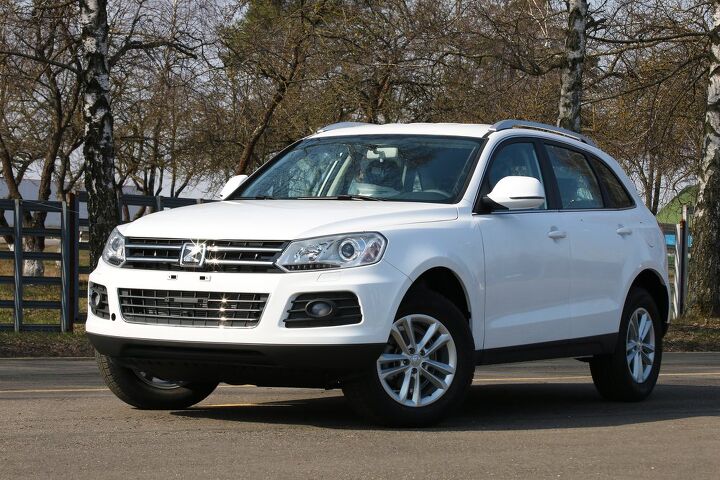
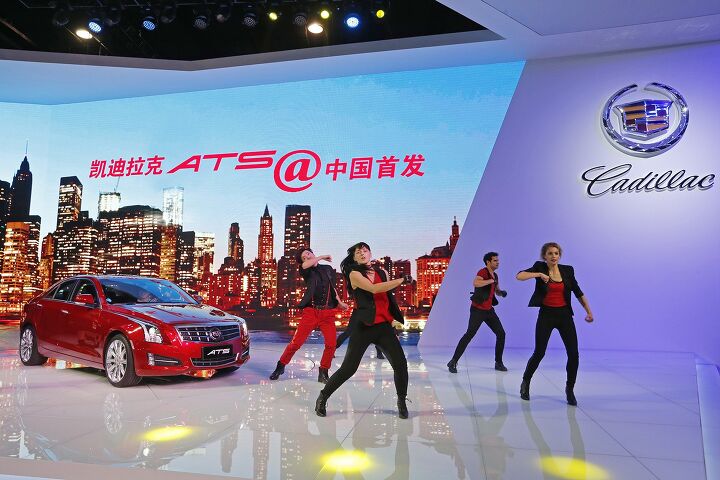

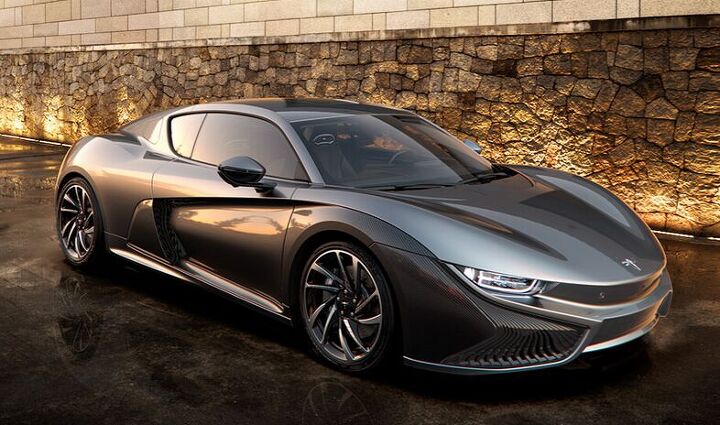

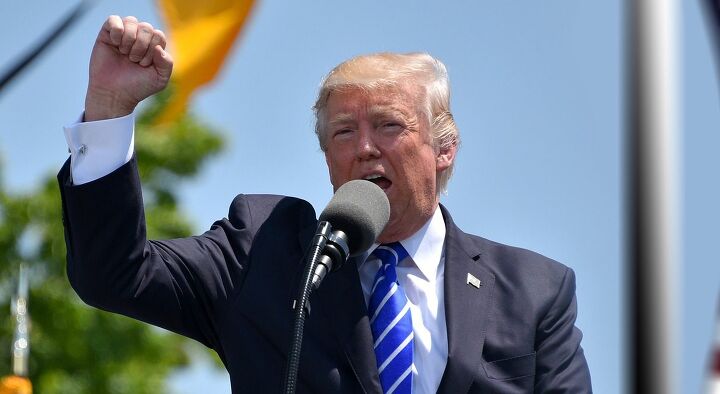

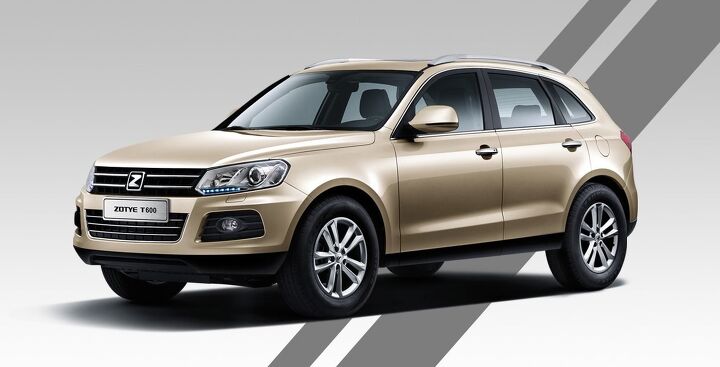
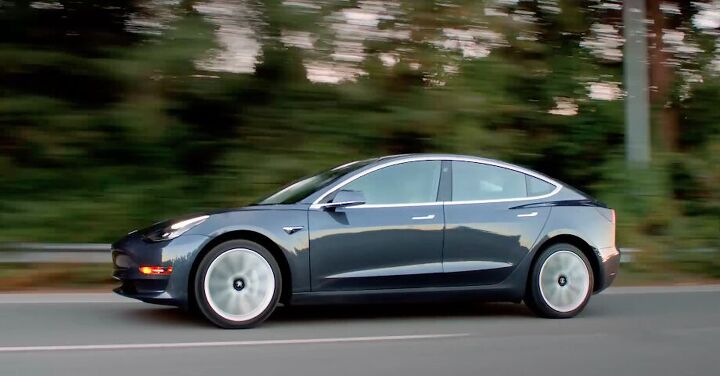



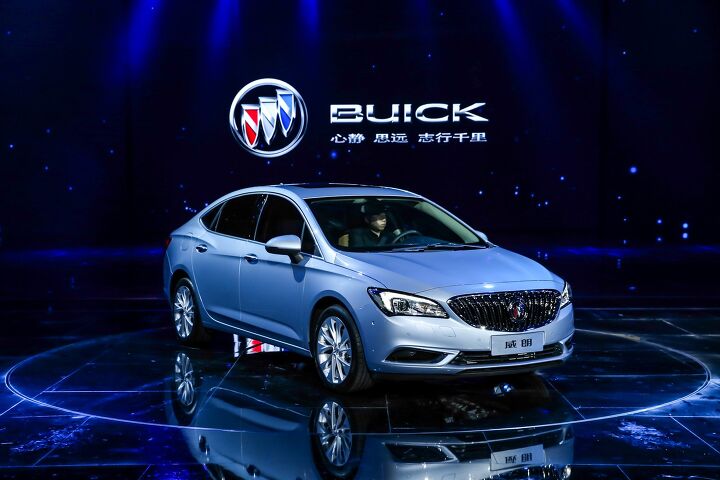
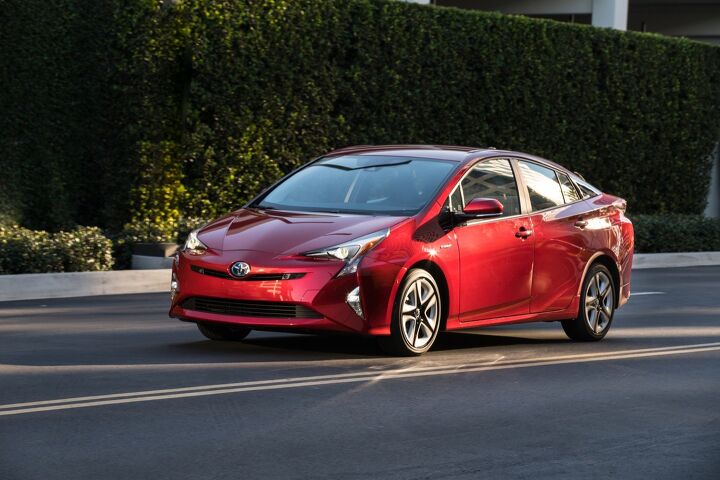
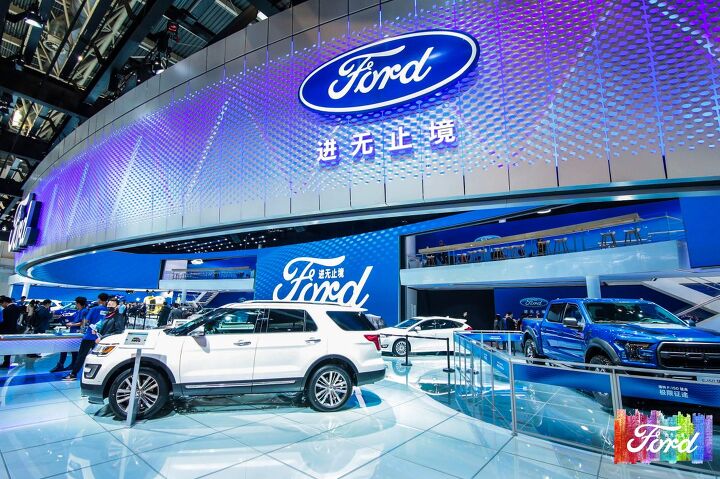

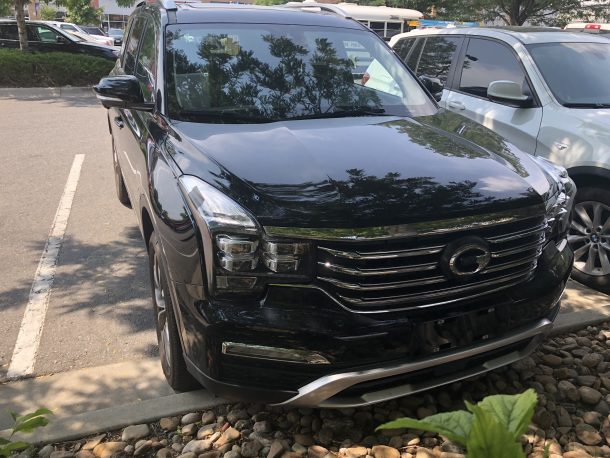

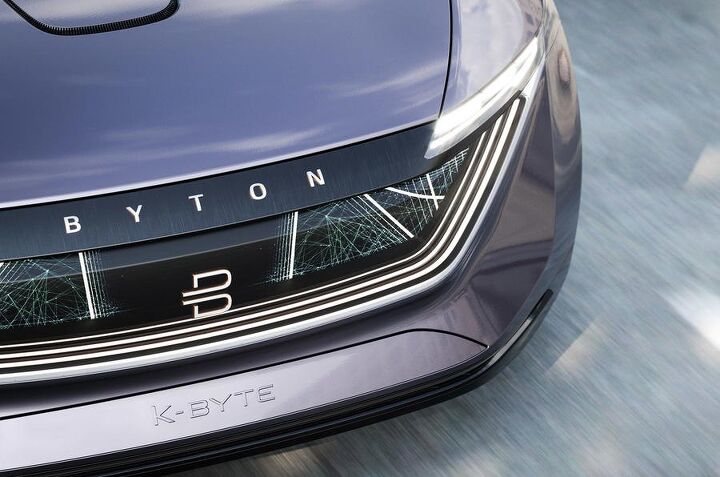




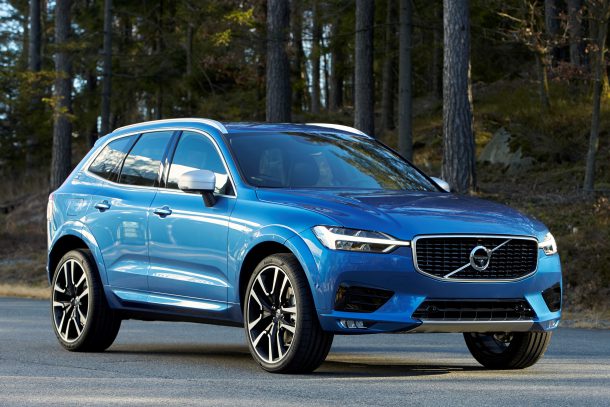
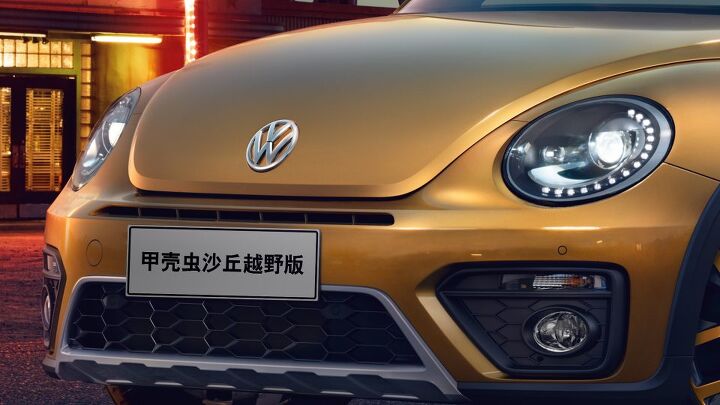

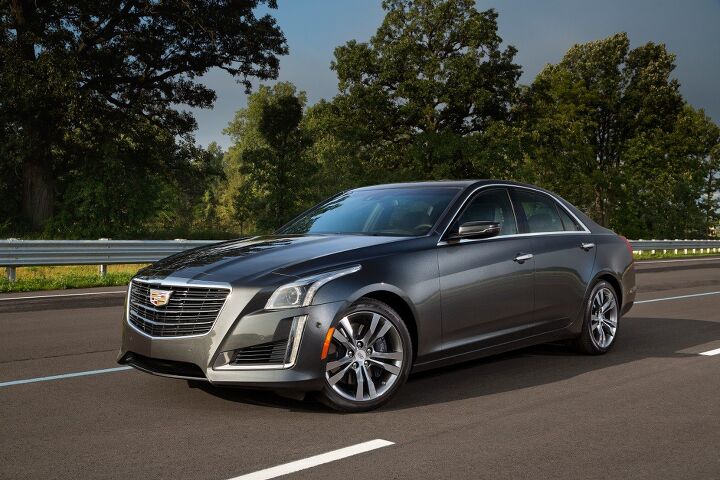
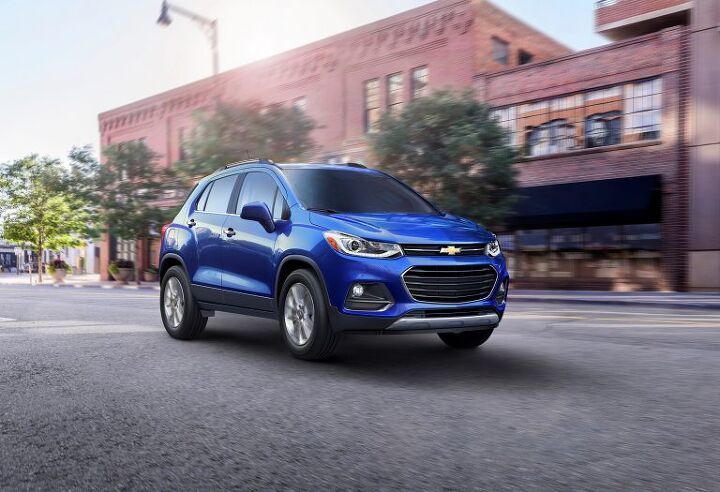


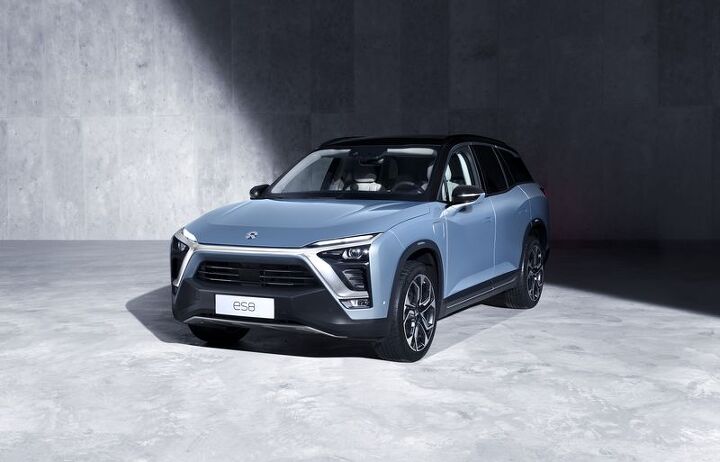





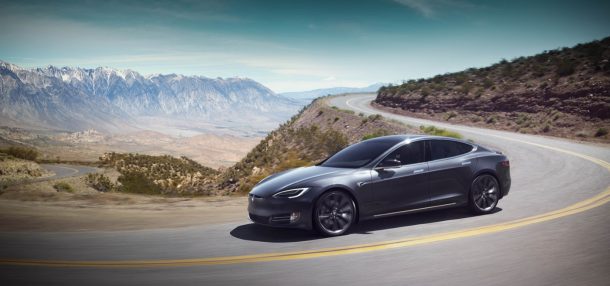
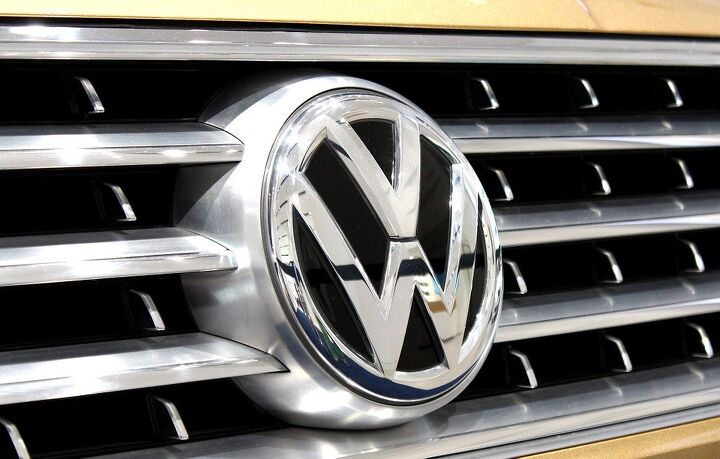
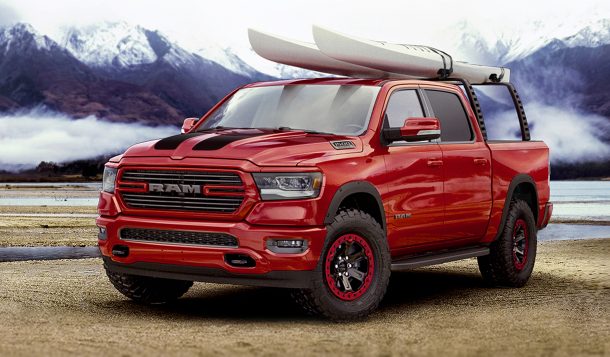



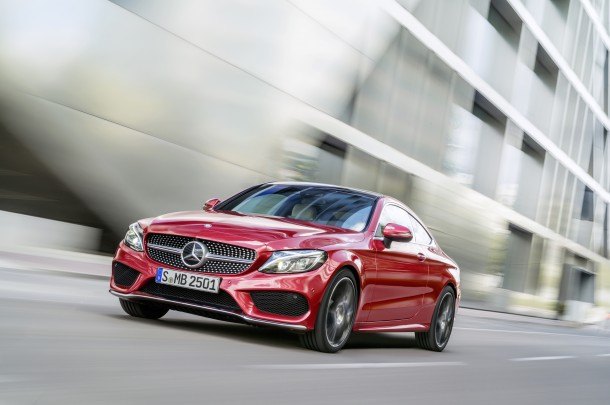





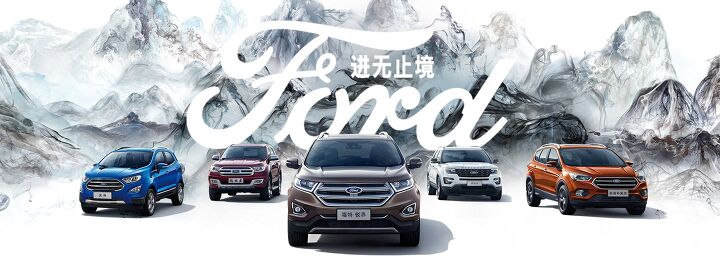
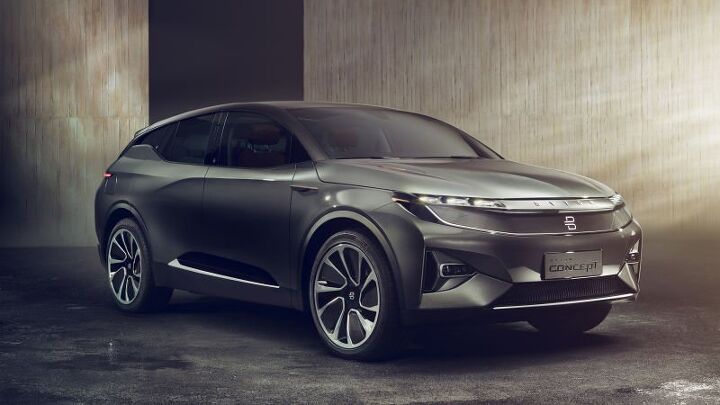
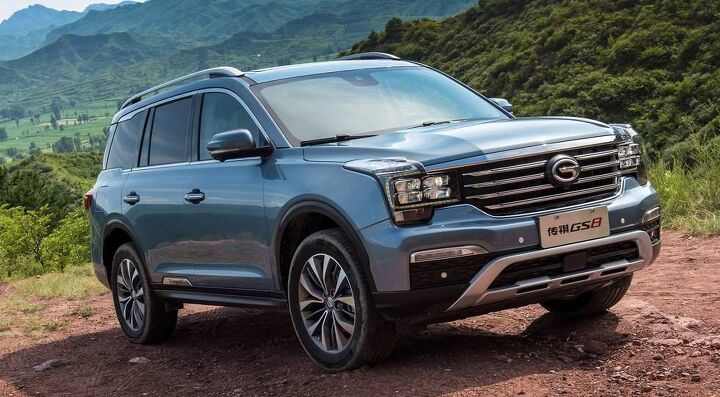
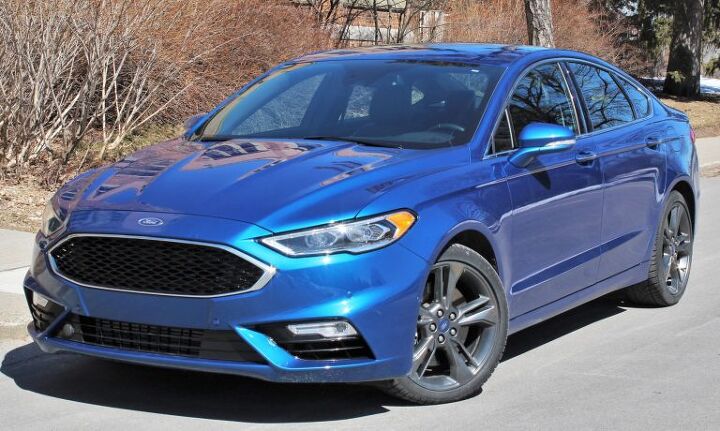












Recent Comments